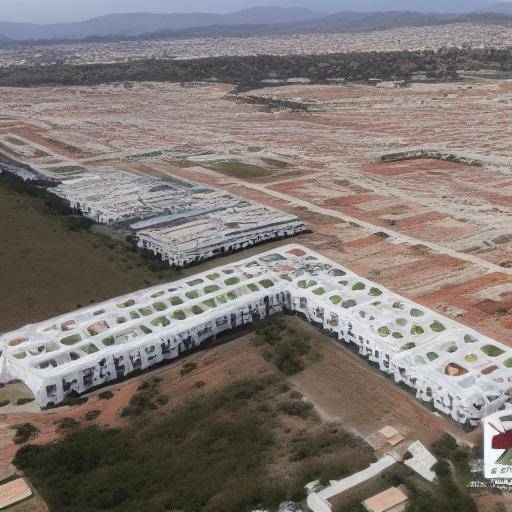
Investment in commercial real estate offers a number of benefits, such as sustainable profitability through leasing and long-term expansion of capital. Leasing income for commercial properties is usually higher and more stable compared to residential properties, due to long-term rental contracts and commercial tenants seeking strategic locations for their businesses.
Benefits:
- Cash flow: Long-term leases provide constant and predictable income.
- Value Appreciation: Commercial properties tend to increase their value over time, especially in strategic locations.
- Diversification: Investing in commercial real estate allows diversifying the portfolio of investments, reducing risks.
- Tax benefits: There are specific tax incentives for investments in commercial real estate, such as depreciation and deductions for mortgage interest.
Challenges:
- Initial capital: It requires a significant investment of initial capital, which can be a barrier for many investors.
- Complex Management: The management of commercial properties can be more complex and demanding compared to residential properties.
- Vacance Risk: The risk of having vacant properties can significantly affect income.
- Economic cycle: The performance of commercial properties can be more sensitive to economic cycles, affecting the demand for commercial spaces.
Current Outlook and Trends
The commercial real estate market is influenced by several current trends that investors must take into account in developing their investment strategies.
Perspectives:
- Technology and Automation: The adoption of advanced technologies in property management and sales is transforming the sector.
- Sustainability: The demand for ecological and sustainable buildings is increasing, driven by regulations and preferences of tenants.
- Flexible spaces: The trend towards flexible workspaces and coworking is redefining the office market.
Market Analysis:
- Strategic location: The location remains a critical factor in the valuation and profitability of commercial properties.
- Sector demand: Demand varies according to the sector; for example, the logistics sector has seen an increase due to the growth of electronic commerce.
Strategies for Investment in Commercial Real Estate
To maximize investment potential in commercial real estate, it is essential to implement well-designed strategies based on detailed analysis.
Key strategies:
- Market Research and Analysis: Before investing, it is crucial to conduct a thorough market research and a feasibility analysis of the property.
- Diversification: Diversify investments in different types of commercial properties and locations to mitigate risks.
- Intelligent financing: Use appropriate funding structures that maximize investment return.
- Effective Property Management: Implement efficient management practices to maintain the occupation and value of properties.
- Strategic Partnerships: Collaborate with other investors or financial institutions to increase capital and share risks.
Opinions of Experts and Future Perspectives
Investment experts in commercial real estate offer a valuable insight into trends and strategies that can influence investment success.
Views of Experts:
- John Smith, Real Estate Analyst: "The key to success in commercial real estate is the diversification and choice of strategic locations with high growth potential."
- Jane Doe, Inverter of Commercial Properties: "It is essential to keep up with market trends and adapt investment strategies accordingly."
Futures:
- Technological Innovation: Technology will continue to play a crucial role in managing and optimizing commercial properties.
- Change in the Demand: The demand for certain types of commercial properties, such as industrial and logistics spaces, will continue to grow due to the boom in electronic commerce.
- Sustainability and Regulations: Environmental regulations and demand for sustainable practices will influence the valuation and development of new commercial properties.
Conclusions
Investing in commercial real estate can be a lucrative and sustainable strategy if the right strategies are implemented and informed decisions are made. By understanding benefits and challenges, current trends and effective investment strategies, investors can maximize their returns and minimize risks. The key is thorough research, diversification, and adaptation to changing market conditions.
Frequently asked questions
**What is the main difference between investing in commercial and residential real estate?**The main difference lies in the nature of tenants and lease contracts. Commercial properties typically have long-term lease contracts with companies, providing more stable and predictable income compared to residential properties, which typically have shorter lease contracts with individuals.
**What factors should I consider when selecting a commercial property to invest?**When selecting a commercial property, it is crucial to consider location, market demand, property type, occupation history and value appreciation potential. It is also important to analyze the terms of the lease and the quality of the tenants.
**How can I finance an investment in commercial real estate?**There are several financing options for commercial real estate investments, including commercial mortgage loans, investment associations, private financing and real estate crowdfunding. It is essential to choose a financing structure that aligns with your investment goals and your financial capacity.
**What are the risks associated with investment in commercial real estate?**The main risks include long-term vacation, fluctuations in property value, changes in market conditions and problems with tenants. Mitigating these risks involves active management and investment diversification.
**What emerging trends are affecting the commercial real estate market?**Some emerging trends include the growing demand for sustainable and ecological spaces, the digitization of property management, the increase of coworking spaces and the expansion of electronic commerce, which drives the demand for logistics and industrial properties.
**Is it better to invest in commercial properties through an investment fund or individually?**It depends on your investment objectives, level of experience and management capacity. Real estate investment funds offer diversification and professional management, while individual investment allows total control over generated decisions and revenues. Evaluating your needs and resources will help you determine the best option for you.
In conclusion, investing in commercial real estate can be a strategic option to diversify your portfolio and generate stable income. By applying appropriate strategies and staying informed about market trends, investors can maximize their profitability and ensure sustained growth.






















































